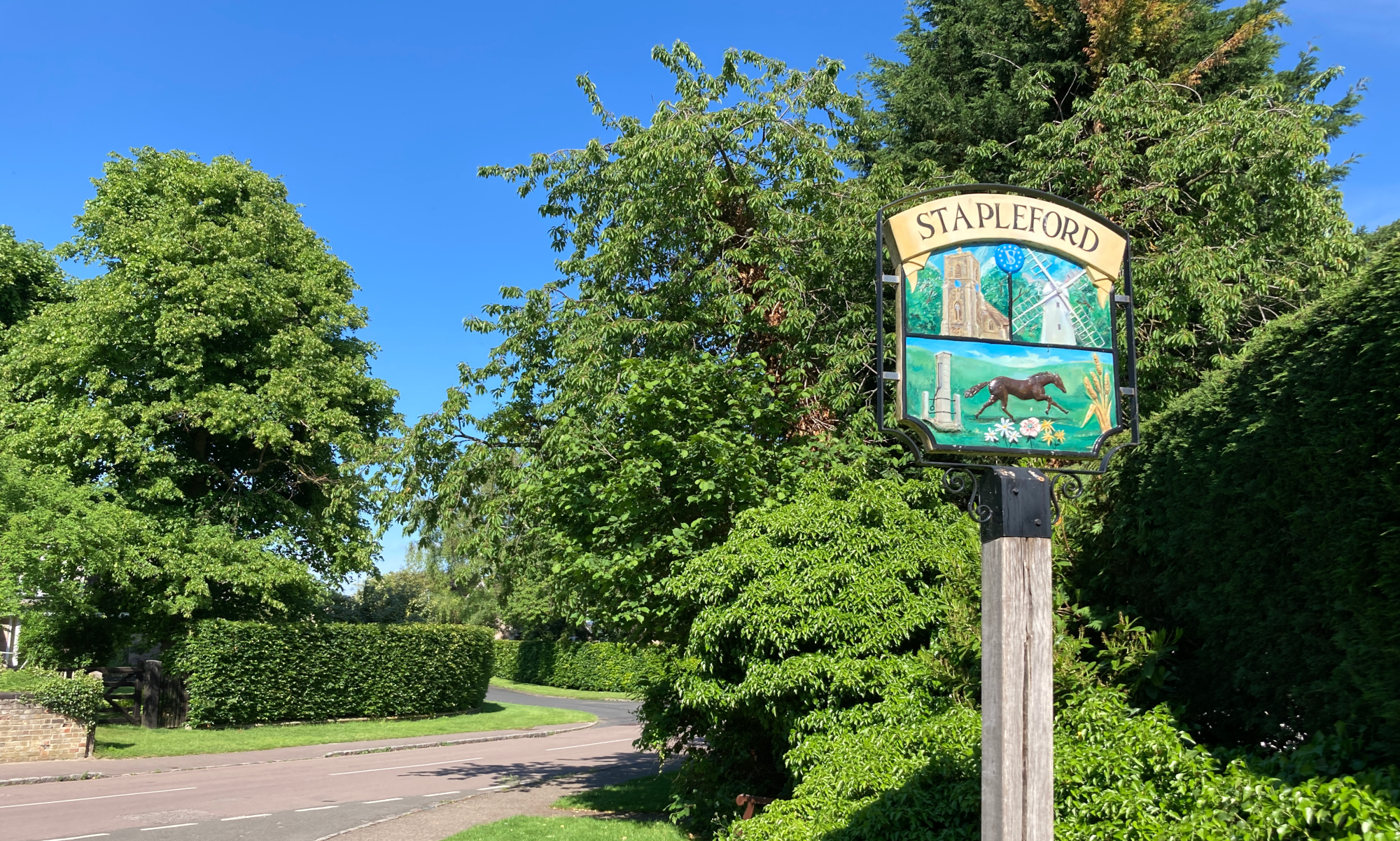Githa Challis née Bradford
Githa’s grandparents lived in Dingle Dell and her parents, Hilda (known to friends as the Duchess) and Frank bought a cottage in Tunwells Lane. Later her grandparents bought the house adjoining Dingle Dell and knocked a doorway through so they left Tunwells Lane and they all lived in Dingle Dell. The grandparents also bought an area of land known as Adcroft Piece from the Chalk family where they built a house. Hilda and Frank moved into this house with their children Githa and Robert and when they died Robert moved in with his family before selling the land for development. Frank Challis spent all his working life at Chaston’s flour mill in Great Shelford which has since been replaced by a series of office buildings beside the station.
Her grandfather was in the Army in WW1 and looked after horses which were used for transport. He survived and and when he returned to civilian life he got a job looking after horses on a farm in Babraham. There was a well in the garden of Dingle Dell but sometimes it would run dry in the summer and her father would have to take a barrel on wheels to the village pump on the corner of Bar Lane.
“I had a lovely time at Stapleford School before going on to Sawston VC. I always enjoyed dancing and went for lessons with Joan Skipper every week which cost 2/6 each. In the Xmas term of my last year at school my friend and I were chosen to be in a dance troupe and spent six weeks performing in pantomimes in different towns. We were always well chaperoned. We spent a whole week in towns such as Rugby, Shrewsbury, Clacton and Portsmouth. I left school at 15 and went to work in Mathews the grocers shop in Trinity Street opposite St. John’s College. This is now Heffers book shop. I started in the warehouse in the basement and was then offered a post in the shop in the glass department. I had only worked there for a few months when Mr. Matthews kindly allowed me to join the dance troupe again for another pantomime season.”
“A few months later Mr. Smith who ran the village post office asked me if I would like to work for him in his shop. I didn’t need to think twice about this as I could just walk across the road to work.
“Because we had some land we were able to keep a few chickens and goats which gave us milk and cream, eggs and meat so we weren’t too badly off during the war. As well as working long hours at the flour mill my father was in the Home Guard. I can remember a bomb landing on Huckridge Hill. (This is the hill where the sewage works stands).’
In 1953 I married Norman Challis whose parents owned a small farm called called Bury End Farm which was on the corner of what is now Joscelynes. We owned the land which the houses are built on and rented the meadows behind the houses in Bury Road from the Johnson family who owned The Grove. We had about a dozen cows which were milked by hand in a small dairy which was the middle of three cottages facing Bury Road. We lived in one of the cottages and the other was used as a store. During the summer months the cows were moved to a meadow at Dernford farm which was on the other side of the railway line and the river. A small shed was used as a parlour during these months to save bringing the cows all the way back to the farm. The milk was sold around the village. As this was a small farm Norman ran a small transport business until the land was sold for development.

